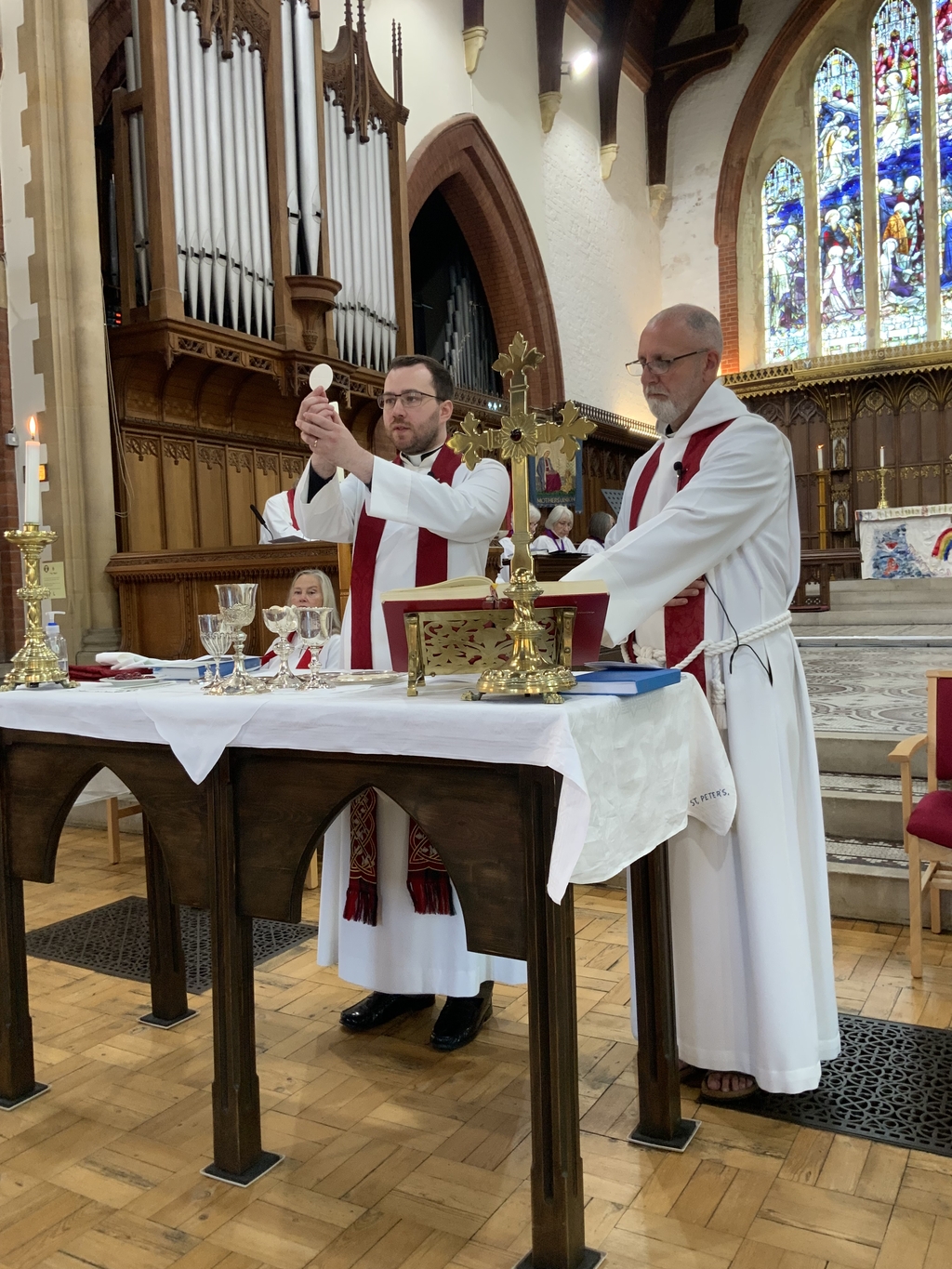`Martha, Martha, you are worried and upset about many things, but few things are needed – or indeed only one. Mary has chosen what is better, and it will not be taken away from her.`
Our Gospel reading introduces us to two sisters, people close to Jesus and his disciples. Two sisters: as so often, they are very different in character from one another. Mary is sitting at Jesus` feet, listening to his words. Martha is rushing around preparing the meal that they will soon enjoy. She is cross that she is preparing the meal all on her own and asks Jesus to send Mary to help her. So we hear his gentle words of response.
We can feel sorry for Martha can`t we? Here she is looking forward to welcoming Jesus and she is preparing a meal for them to share.. But Mary her sister is just sitting there, listening to Jesus. No wonder she is cross!
We`ve perhaps been through similar experiences. At school when someone is rewarded for not much work at all. At college where we seem to be the only one who keeps the communal kitchen tidy and the fridge stocked. At work when someone promises to do a task and then doesn`t do it and the task is spoilt.
As always, Jesus uses simple events as opportunities for teaching about what it means to follow him. He commends Mary for her actions and gently chides Martha for hers.
Here is some of his teaching about grace and the importance of being open to receive. So what are we to make of this moment for our own lives?
It`s important to know that Martha`s gifts were good and her motives were the highest. She wanted everything to be the best for Jesus. She worked hard to make it so. You may be a Martha. To be a Martha is good – but being a Martha can make us slip into unhelpful habits. We can be so busy concentrating on achieving the task that we forget the people involved within that task. We can be so busy concentrating on what we are doing for God that we don`t take time to include what it means to be his follower.
What can Mary teach us about the Christian life? To Martha and perhaps to some of us, she seems to be a lazy sister, happy to let others sort out the practicalities of life. But what Jesus is commending her for is her willingness to listen to him. The voice from heaven at Jesus` baptism commanded that we should listen to him. In the parable of the sower Jesus commends those who hear his word and obey it.
How much do you and I listen to Jesus and act on his word?
When we have an important decision to make, do we stop and resolve not to go forward until we have received clear guidance from God?
When we leave church after a service what is it that we take with us from the words of the hymns, the readings, the sermon, to enrich the week ahead of us? Do we hear just fleetingly or do we allow God`s word to take root in our hearts?
How much do we allow him to speak to us through his word each day? How much do we look at our bibles within the week?
How much do we allow space for God to speak to us through our prayers? Do we talk a lot or do we give time to him to say to us what we need? Christian meditation is an art which many have discovered has enriched their walk with God – simply taking a few minutes and asking God to speak to us. There may be words of peace, there may be challenges and questions. We need to learn to be still and to listen.
The bible is full of stories of people whose lives are changed because they listened to God. We think of Samuel in 1 Samuel chapter 3: `Speak, for your servant is listening.` Here is the call of Jesus, the Good Shepherd in John 10:3: `the sheep listen to his voice. He calls his own sheep by name and leads them out.` That listening is there in the last book of the bible, Revelation 1:3: `Blessed is the one who reads aloud the words of this prophecy, and blessed are those who hear it and take to heart what is written in it, because the time is near.`
Listening to God is sometimes difficult. We need to practise it. Those who have spent years endeavouring to understand how to do it can help us. We might begin by meditating on our Epistle reading this morning, Colossians 1, 15-28, which summarises the wonder of the Gospel.
`Few things are needed – or indeed only one.` That is the reason why Jesus longed for Martha to learn from Mary. He wanted Martha to receive as Mary was receiving. He wants the same for each one of us. He has so much to say to us. He wants us to listen.
The Revd Pat Hopkins











